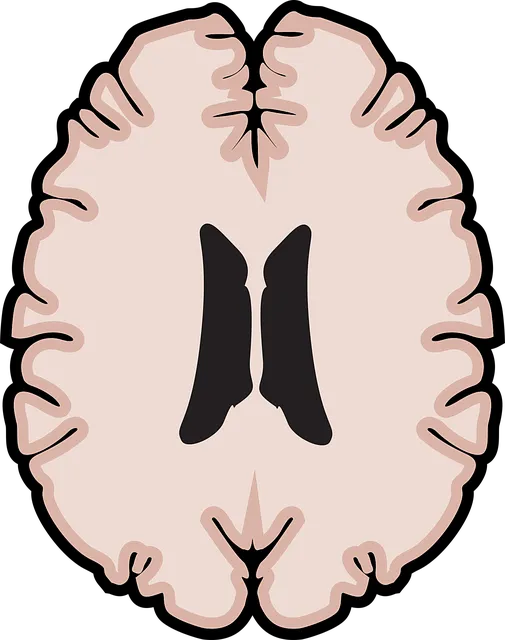Wheat Ridge Kaiser Permanente's mental health services prioritize risk management through a comprehensive approach to patient safety. This involves identifying and mitigating risks from complex client needs, high-stress environments, and ethical dilemmas faced by professionals. By cultivating empathy, enhancing communication, and promoting staff well-being, they create a supportive working environment. Their strategy includes personalized intervention plans, continuous training, and open team culture, ensuring early risk detection and effective management. This holistic approach not only enhances patient outcomes but also fosters the resilience of mental health service providers, reflecting the organization's commitment to exceptional care.
“Effective risk management is paramount in the mental health sector, where even minor setbacks can have profound impacts. This article guides mental health professionals at Wheat Ridge Kaiser Permanente towards a robust risk management strategy. We explore key areas such as understanding risk dynamics in mental health practices, identifying unique risks specific to our services, and developing tailored mitigation plans.
Through practical implementation strategies and emphasis on continuous improvement, this guide ensures professionals are equipped to navigate challenges, fostering a safer environment for patients and staff.”
- Understanding Risk Management in Mental Health Practices
- Identifying Potential Risks and Hazards Specific to Wheat Ridge Kaiser Permanente's Services
- Developing a Comprehensive Risk Management Plan
- Implementation Strategies for Effective Risk Mitigation
- Regular Review and Adaptation: Ensuring Continuous Improvement
Understanding Risk Management in Mental Health Practices

In the realm of mental health services, risk management is a cornerstone that ensures patient safety and well-being, exemplified by institutions like Wheat Ridge Kaiser Permanente. This involves a systematic approach to identify, assess, and mitigate risks associated with providing care, including those posed by complex client needs, interpersonal interactions, and systemic pressures. Effective risk management in mental health practices necessitates a nuanced understanding of the unique challenges faced by professionals, such as high-stress environments, emotional exhaustion, and potential ethical dilemmas.
Risk assessment for mental health professionals goes beyond simply identifying hazards; it involves cultivating empathy building strategies that foster strong therapeutic alliances, enhance communication, and promote resilience among both practitioners and clients. This holistic approach is further enhanced through initiatives like the Mental Wellness Podcast Series Production, which offers valuable resources and knowledge-sharing opportunities. By integrating these strategies into their practices, mental health professionals can create a more supportive, reflective, and ultimately, effective working environment, echoing the commitment to patient care seen at Wheat Ridge Kaiser Permanente.
Identifying Potential Risks and Hazards Specific to Wheat Ridge Kaiser Permanente's Services

At Wheat Ridge Kaiser Permanente, mental health professionals navigate a unique landscape of potential risks and hazards that demand careful consideration in risk management planning. The high-pressure environment, coupled with the sensitivity of patient care, necessitates proactive strategies to safeguard both practitioners’ emotional well-being and the quality of services provided. Among the key areas of concern are workload intensity, which can lead to burnout among professionals tasked with managing diverse mental health needs. This is exacerbated by the constant exposure to traumatic narratives from patients, posing a risk to their own psychological resilience.
Additionally, maintaining confidential communication while ensuring patient safety in a rapidly evolving regulatory landscape is another challenge. The Wheat Ridge Kaiser Permanente mental health services number, often the first point of contact for patients, must be equipped with protocols that address these risks effectively. This includes integrating self-care practices and emotional well-being promotion techniques into the work culture to mitigate stress levels and foster a supportive environment. By prioritizing burnout prevention strategies, the organization can enhance staff resilience, ensuring consistent delivery of exceptional mental health services.
Developing a Comprehensive Risk Management Plan

In developing a comprehensive risk management plan for Wheat Ridge Kaiser Permanente mental health services, professionals must adopt a holistic approach that integrates Compassion Cultivation Practices. This involves fostering an environment where practitioners prioritize self-care and emotional resilience, which are foundational to preventing burnout and enhancing patient care. By integrating evidence-based strategies such as mindfulness, stress reduction techniques, and peer support networks, mental health professionals can mitigate risks associated with high-stress work environments.
The plan should also address specific challenges unique to the field, including managing complex caseloads, navigating ethical dilemmas, and staying abreast of evolving therapeutic modalities. Regular reviews and updates are essential to ensure the plan remains dynamic and responsive to emerging trends in mental health care, particularly focusing on Depression Prevention initiatives. This proactive approach not only safeguards the well-being of mental health professionals but also ensures that patients receive consistent and high-quality care.
Implementation Strategies for Effective Risk Mitigation

Implementing effective risk management strategies is paramount for mental health professionals to ensure the well-being of both their clients and themselves. At Wheat Ridge Kaiser Permanente, renowned for its mental health services number, a structured approach to risk mitigation begins with comprehensive assessment tools that identify potential hazards within individual patient cases. These assessments allow practitioners to proactively develop tailored intervention plans, addressing specific challenges like self-esteem improvement, mood management, or even mitigating the impact of social factors contributing to mental illness stigma reduction efforts.
To enhance these strategies, ongoing staff training and workshops play a crucial role in keeping professionals updated on best practices for risk management. Encouraging open dialogue and fostering a culture of support within healthcare teams enables early identification and resolution of issues. This holistic approach not only strengthens patient outcomes but also contributes to the long-term resilience of mental health service providers.
Regular Review and Adaptation: Ensuring Continuous Improvement

Mental health professionals must embrace a mindset of continuous improvement through regular review and adaptation of their risk management plans. This proactive approach ensures that strategies remain effective and relevant in addressing evolving challenges within the field. By conducting periodic assessments, professionals can identify areas for enhancement, incorporate new research and best practices, and adapt to changing client needs and societal trends. Such consistent evaluation fosters a culture of safety and excellence in Wheat Ridge Kaiser Permanente mental health services.
For instance, adhering to Mind Over Matter Principles, risk assessment should involve not only identifying potential hazards but also evaluating the resilience and coping mechanisms of clients. This holistic approach boosts confidence among both service providers and consumers, creating an environment conducive to positive mental health outcomes. Regular reviews allow for adjustments in treatment plans, ensuring that interventions remain tailored to individual needs and aligned with current evidence-based practices.
Risk management planning is not just an option, but a necessity for Wheat Ridge Kaiser Permanente’s mental health services, given the inherent complexities and sensitivities of the field. By understanding the unique risks involved, identifying them proactively, and implementing effective mitigation strategies, this healthcare provider can ensure the safety and well-being of both patients and professionals. Regular review and adaptation of the risk management plan are key to staying ahead of emerging challenges, making it a living document that fosters continuous improvement. This structured approach allows Wheat Ridge Kaiser Permanente to provide high-quality, compassionate care while minimizing potential harm, ultimately enhancing patient outcomes and professional satisfaction.






